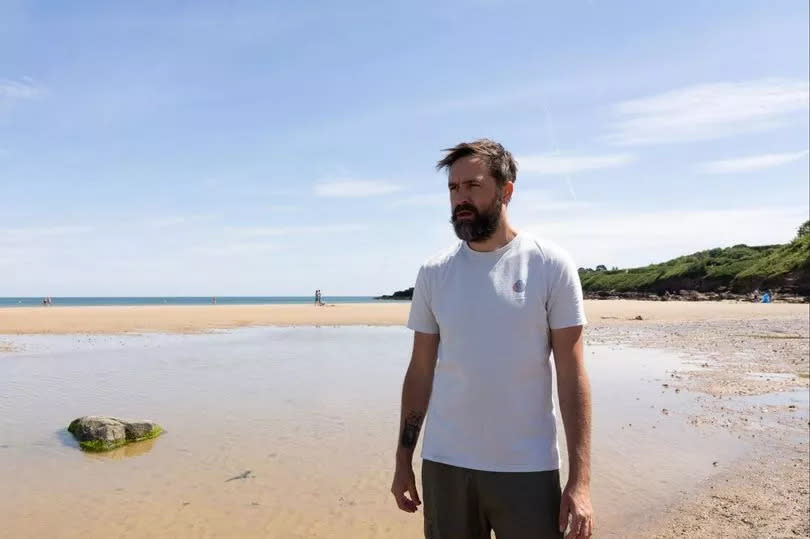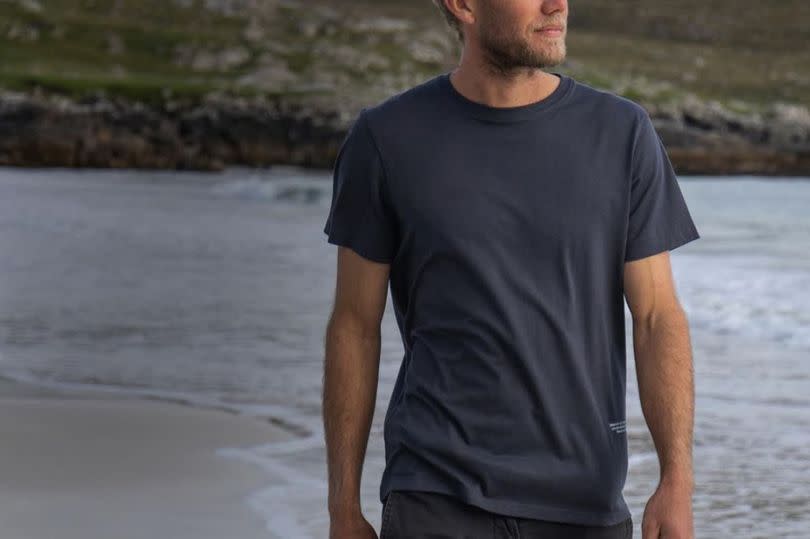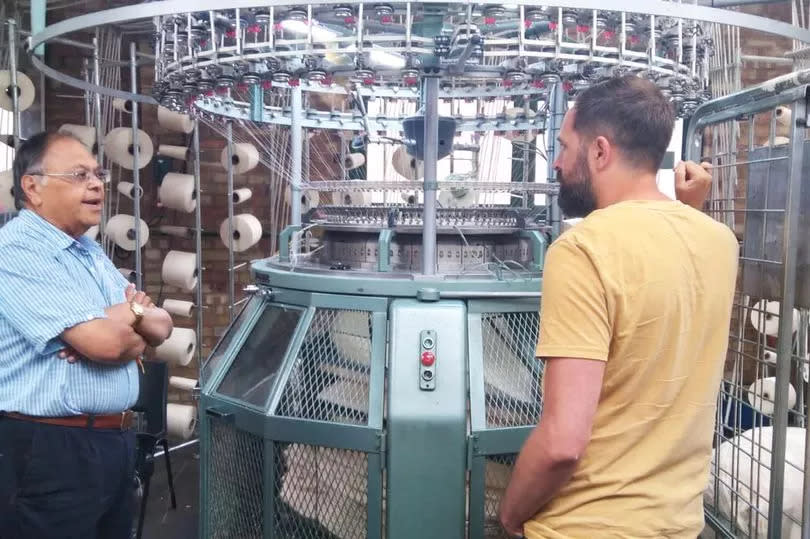The company that's making eco-friendly fabric from seaweed - and wants more people to get involved

A company which makes T-shirt fabric from seaweed is looking for clothing brands who want to use the sustainable material for their own design. I will be the first to admit that I can be a little nerdy when it comes to this plant, but it is difficult not to get excited about the idea that seaweed could become a sustainable alternative to harmful fabrics like polyester.
Polyester is a common material found in clothes that takes a long time to break down, unlike seaweed which is biodegradable. Adam Costello, founder of Ecosphere, formally known as Inland Sea and based in Chichester, said: “I’m still flabbergasted that eco-friendly brands are still using recycled plastic when the solutions seaweed offers are incredible.”
Seaweed is one of the oldest and most enduring plants in the world, and can absorb up to 20 times more carbon than land-based plants. When the company first began they bought their seaweed from the Car-Y-Mor farm, a community action project in Pembrokeshire. The first ‘regenerative ocean farm’ in Wales, they have expanded to a three hectare seaweed and shellfish farm with 12 staff members over the last three years - and hope to develop a seweed refinery.
Read more: The company using seaweed from Welsh beaches to make plastic alternatives
Originally a portion of the funds Ecosphere made from selling their T-shirts went back to the farm. Now they use SeaCell to make their fabric which is a mixture of seaweed from Iceland and wood pulp from Australia. SeaCell is manufactured in Germany and then sent to Ecosphere in the UK. SeaCell arrives looking like wool which is then spun in the last cotton mill left in the UK in Leicester.
Speaking to WalesOnline Mr Costello talked about the inspiration behind his company, which he now runs in partnership with old school friend Mark Salmon. While on a family surfing holidays to Anglesey, he recalled being dismayed at the levels of plastic pollution and sewage he saw which eventually led him to join Surfers against Sewage, a marine conservation charity set up in 1990 to help protect oceans and marine wildlife. For the latest Welsh news delivered to your inbox sign up to our newsletter


“It felt like we were going back in time, looking at all that plastic. I knew I always wanted to start a clothing brand so I started doing research in 2017. It was like a light bulb moment when I discovered seaweed could be used to make clothes.”
Originally, Ecosphere produced and sold the t-shirts themselves, however now Mr Costello is looking for other clothing brands to supply with the fabric. “I want to keep this as accessible for everyone. In order to make a profit with the old model we worked out I would have to sell each T-shirt for around £70. I want to be more of a manufacturer and sell this fabric to other brands for their own logos and design.”
I went to speak to an eco-brand based in Cardiff, OverSeas Apparel, to ask whether seaweed clothes could be part of their company's future. Liam Jones, owner and founder, said: “To be honest, whatever is the best and most sustainable way going forward, we will follow suit. I want to be eco-friendly and going forward I am happy to use whatever is sustainable and whatever is going to make the product better.”
Overseas Apparel currently makes their clothes from recycled plastic and 100% organic cotton. Mr Costello said he understands why eco-friendly brands use recycled plastic but going forward he is hopeful more brands will get on board with seaweed as a breathable fabric that their tests have found do not get dirty as fast as polyester. “What would people rather wear at the end of the day, something made from a plant or something made from plastic?”

 Yahoo News
Yahoo News 
